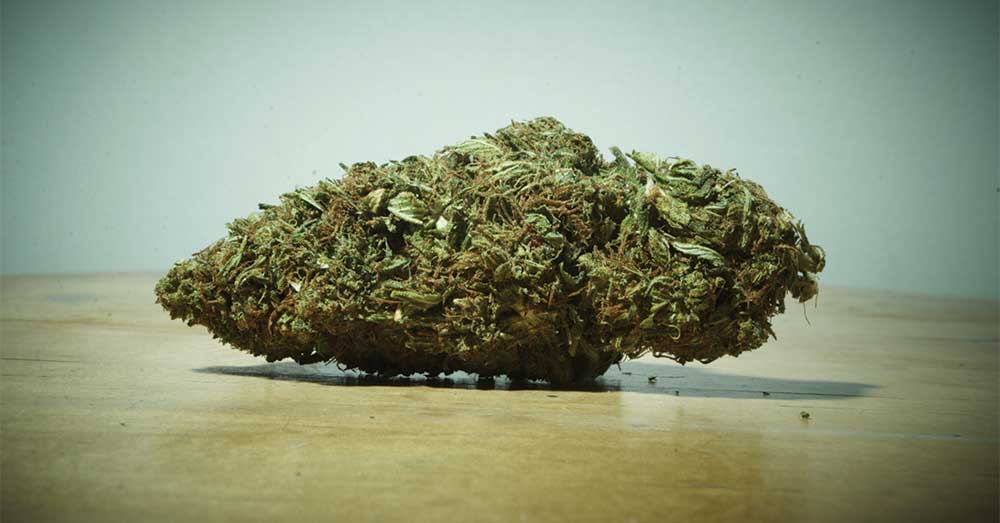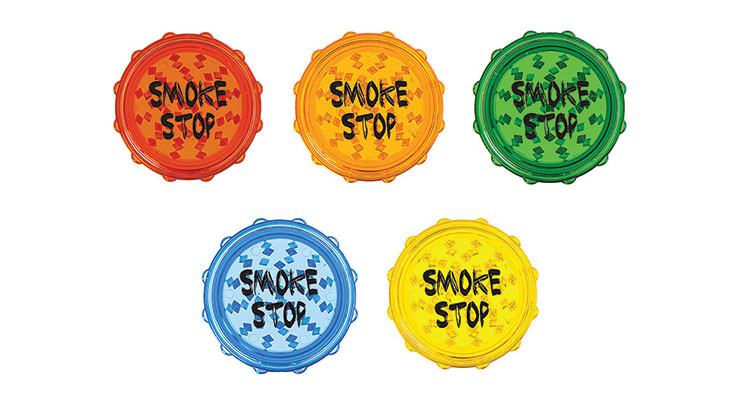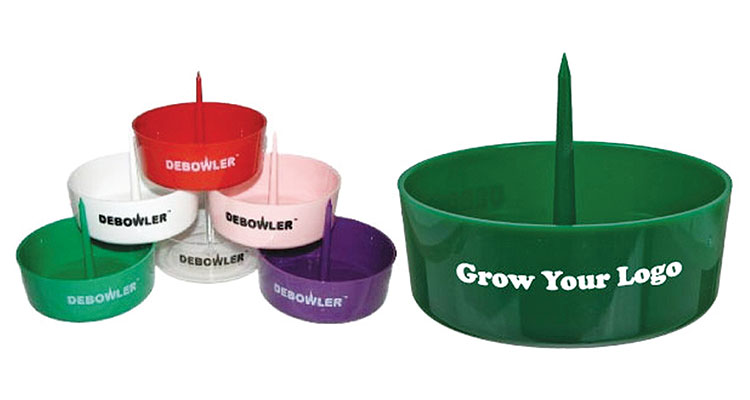April 20, 2018
Marijuana Regulations and the Promo Industry
While the legalization of marijuana offers new promotional opportunities, business leaders are struggling to weed through suffocating ad regulations.
A rapidly growing number of businesses and consumers are having their first dance with Mary Jane as the legalized cannabis industry lights up the United States. Since 2012, nine states have legalized marijuana for recreational use: Colorado, Washington, Oregon, California, Nevada, Alaska, Maine, Massachusetts and Vermont. In January, Vermont became the first state to legalize by passing a law in the legislature rather than by use of a ballot measure.

On the other hand, medical marijuana has been legalized in 29 states since California ignited the trend in 1996. Washington D.C., has legalized both medical and recreational marijuana use. Up north, medical marijuana has been permitted in Canada since 2001, and full-scale legalization in the country is slated for July.
As widespread acceptance has increased, so has the amount of consumers. Legal marijuana sales in North America were predicted to hit $9.7 billion last year, representing an unprecedented 33% rise over 2016, according to cannabis industry analyst Arcview Market Research. State tax revenue from cannabis retail sales are predicted to total $745 million in 2017 and $2.3 billion in 2020, research agency New Frontier Data reports. The industry is expected to reach $24.5 billion in sales by 2021 as more states follow suit and existing markets mature.
Despite the industry’s financial boom and the potential it could have on the U.S. economy, cannabis remains illegal at the federal level, preventing sales outside legalized states or shipments across state lines. That isn’t likely to change under the Trump administration: In January, Attorney General Jeff Sessions rescinded the Cole Memo, which assured cannabis businesses they would not be subject to federal prosecution as long as they followed their state’s laws. Thus, state prosecutors would be allowed to use their discretion in bringing charges against businesses and individuals that violate the Controlled Substances Act (CSA).
Congress struck back by approving the CJS Medical Marijuana Amendment (aka the Rohrabacher-Blumenauer Amendment), a rider attached to the federal spending bill that prohibits the Department of Justice from interfering with state-legal medical marijuana operations until at least September – the end of the current fiscal year. Many bipartisan lawmakers have also lobbied the House Appropriations Committee for broader provisions in the 2019 federal budget that protect recreational marijuana businesses from federal prosecution as long as they’re complying with state-passed laws.
Facebook Live
Watch as ASI's John Corrigan and Jake Krolick engage in a lively discussion about marijuana and the promo industry!
Prohibition at the federal level also affects commerce in the cannabis industry; for example, related businesses have limited or no access to basic banking services such as lines of credit or even opening a checking account. Because U.S. financial institutions report to the Federal Deposit Insurance Corporation (a federal entity), any assistance provided by banks to marijuana companies could be construed as money laundering, according to the CSA. In many cases, financial institutions simply refuse to cater to marijuana businesses, forcing them to operate entirely through cash. In 2017, only 368 of 12,000 financial institutions in the U.S. served cannabis businesses, FinCEN reports.
In addition, cannabis businesses are forced to pay an effective tax rate as high as 70%, compared to the more typical 30% rate, as a result of tax code 280E. Congress passed the measure in 1982 so businesses who are “trafficking in controlled substances” prohibited by federal law may not utilize many tax deductions and credits available to other businesses.
Twitter Poll
Do you think recreational marijuana should be legal in all 50 states? #420Day #Poll
— ASICentral (@asicentral) April 20, 2018
The Consumers
In spite of the legal challenges, businesses are still bum-rushing the cannabis industry because the product continues to expand its audience. In October, a Gallup poll found that 64% of Americans support legalizing marijuana for both medicinal and recreational use, the highest support since Gallup first asked the question in 1969. Furthermore, nearly 30% of adults aged 21 and older in California, Colorado, Oregon and Washington have consumed cannabis within the past six months, according to BDS Analytics, a consumer research agency.
“I have never seen anything that is going to impact every industry like this, except maybe the internet,” says Linda Gilbert, managing director of consumer research at BDS Analytics.
Public sentiment is changing because the average cannabis consumer is changing. Marijuana isn’t just for college kids anymore; BDS Analytics data shows that the average consumer is both male and female, in their early 40s, living in cities, working full-time. “They like to try new products and are willing to spend more for quality,” Gilbert says.
In order to capitalize on this groundswell of support, cannabis companies are focusing their efforts on not only reaching out to new consumers but also altering the perception of their product. They’re marketing their brands as sophisticated and mature, straying from the sophomoric stigma fueled by pop culture fixtures like Cheech and Chong. Their efforts are winning over past critics. For example, former House Speaker John Boehner recently joined the board of cannabis firm Acreage Holdings. Boehner said his views on marijuana had evolved.
“Because the legacy of cannabis is that it’s a product for college stoners, in order to change people’s opinions, you have to show how products are used in social, relaxed and even medical settings,” says Eddie Miller, founder of Green Rush, an online marketplace for delivery and pick-up of cannabis products.
As the extremely profitable cannabis industry evolves, it’s ripe for promotional products companies to intervene. Businesses are looking to invest in full-scale marketing plans, seeking innovative solutions to their decades-long problem. With restrictions on traditional marketing tactics such as television and radio commercials, branded merchandise offers an alternative way to attract more eyeballs.
“The future of cannabis is branded product,” Miller says. “Over time, consumers will end up trusting certain brands. The old industry was fully commoditized as names were geared toward the stoner community. Now there’s a real path forward to the way cannabis is viewed and promoted and packaged.”
In order to build these brands, cannabis companies are determining who their consumers are, what their preferences are and how best to target them. According to BDS Analytics, 70% of consumers prefer inhalables (any form of smoking marijuana), 24% prefer edibles (pot brownies, candy, etc.) and 4% prefer topicals (cannabis-infused lotions, balms and oils). In terms of market share, inhalables dominate at 80% while edibles take 15%.
The reasons for cannabis consumption vary from managing anxiety to enhancing creativity, with 68% of consumers using it for recreational or social purposes and 52% using it for health or medical purposes. BDS Analytics found that consumers enjoy pairing cannabis with music/movies (48%), snacks (45%), exercise (19%) and alcohol (18%).
“Know your target consumer, know their motivation and know their benefits,” Gilbert says. “Treat your consumer with respect. This tongue-in-cheek marketing is insulting to people because that’s not who they are, that’s not how they want to be perceived.”
Gallery
Check out photos of products aimed at the cannabis industry.
Promo Biz
As one of the first states to legalize recreational marijuana, Colorado has become a haven for suppliers and distributors selling cannabis-themed promotional products. In 2015, Colorado’s promo sales increased at a faster rate than any other state in the country – up 10% from the year prior.
“When a new industry starts in a state, rarely does it exceed sales of $1 billion in its first five years, yet that’s what’s happening with marijuana in Colorado,” says Nate Kucsma, ASI’s director of research. “With very strict dispensary regulations in place for TV, radio, internet and outdoor advertising, it’s no surprise that promotional products – which don’t have these restrictions – are booming.”
Jay Tittman, owner of Rocky Mountain Business Products (asi/590287), has provided branded stickers, pens and lighters to help dispensaries promote their shops. He believes it’s not only event traffic that’s driving sales, but tourism as well. “There’s a big attraction for tourists to buy a cap or T-shirt with a dispensary’s name on it,” Tittman says. “This stuff is being merchandised extensively. It’s definitely an area we want to focus on.”
Promo firms outside Colorado are also profiting. New York-based Lincoln Line (asi/52710) boasts a vast array of unique, customizable cannabis-themed products such as glass jars, grinders, ash trays, rolling papers and rolling trays.
“It seems like every time more legalization comes about, our sales shoot up,” says Lincoln Line’s operations manager Brent Elenowitz. Initially, he entered the market as a distributor selling to dispensaries and smoke shops. However, many business owners were afraid to put their name on products because the advertising regulations have been so unclear. “You really need connections to get into dispensaries,” he says. “The last thing on their mind is handing out promotional items.”
Since transitioning to the supplier side, Elenowitz has been working with retail, selling branded accessories to companies on the fringe of the cannabis industry. “There are fewer regulations for distributing tools than the medicine itself,” he says. “Most of our clients have been musicians selling the products at their merch stands.”
Fellow New York-based supplier Devara (asi/49470) entered the cannabis market this year, developing a retractable name badge reel made partly of hemp. “Our product has been well received thus far where marijuana has been legalized both medically and recreationally,” says Joe Fina, vice president of Devara. “Stay consistent with your effort and be in it for the long haul because the legalized marijuana market will continue to grow along with the opportunities to promote it.”
Cara Knostman, owner of California-based Lotus Mountain Custom Screen Printing and Embroidery, says her company has experienced a 35% jump in cannabis-related merchandise sales since 2016. “We could feel legalization coming, and that’s when our business picked up,” Knostman says. “The customers we deal with are super-upstanding people. Bringing them out of the black market and into the regular tax-paying business world is really good for them and for our whole community.”
Orders for cannabis-themed T-shirts, embroidered hats, labels, stickers and banners have fueled the shop’s expansion. “We’ve been able to hire more people because of it,” Knostman says. “Good-paying jobs aren’t easy to find in this small, rural town. But we have less of a down period now, so we’ve been able to give jobs and even raises.”
While cannabis advocates scramble for a slice of the pie, those in opposition are also reaping the rewards of increasing legalization. Louisiana-based Advanced Marketing & Promotions (asi/32152) focuses on marijuana prevention, selling educational brochures, pamphlets and retractable banners to police departments, schools and hospitals. “The marijuana boom is affecting business in terms of more people abusing it, which gives us an outlet to let people, especially young people, know what it can do to your body,” says owner Wayne Vicknair.
The supplier has a writer on staff who drafts the brochures based on research from various health organizations and government agencies. Then two graphic designers put it together and print it in-house. “We pride ourselves on having the most updated product, staying on top of all the law changes,” Vicknair says.
Vicknair isn’t necessarily a teetotaler – he just wants consumers to use marijuana responsibly. When edibles became all the rage in Colorado, he sold many brochures specifying the effects of THC (tetrahydrocannabinol, the chemical compound that makes you high) and the suggested dosage. “It’s not illegal to make your own, so teenagers will bake a whole batch of brownies, but they don’t know how to regulate it,” Vicknair says.
Advertising Challenges
Not everybody is cashing in, though. Harry Ein, owner of iPROMOTEu (asi/232119) affiliate Perfection Promo, says that he hasn’t done any cannabis-themed orders in a few months. “I thought I’d hear about more opportunities by now,” Ein says. “We have a solid presence in the San Francisco Bay area, so if a cannabis company was looking for promotional products, they’d reach out.”
Cannabis-related business has also slowed down for Jamie Butkowski, senior account executive at Kirkland, WA-based Image Source (asi/230121). Initially, she targeted the market because her friend had a dispensary and the branded merchandising opportunities were endless. But then the government stepped in, restricting the advertising ability of her biggest clients.
“It was the Wild West and then all these laws came about,” Butkowski says. “Everybody scrambled. Marketing was put on hold. I wanted to pull out.”
Because cannabis remains illegal at the federal level, it’s up to the states to determine how brands can legally advertise. The lack of uniformity poses a major hurdle to brands because each state has differing rules and regulations. For example, Washington doesn’t allow cannabis retailers to sell branded merchandise from their brick-and-mortar location or website – the law necessitates a separate business entity to sell logoed products. In addition, marijuana producers and growers aren’t allowed to give away promotional items to the end-user – they’re only allowed to give them to retailers or for internal company use.
Similar to California and Oregon, Colorado permits advertising only where at least 71.6% of the audience is reasonably expected to be at least 21 years of age, prohibiting ads within 1,000 feet of a daycare center, school, playground or youth center. The Rocky Mountain State also prevents outdoor advertising such as billboards, signs, fliers, handouts, etc. Signage on the retail business is fine as long as it’s on the same zone lot and its only purpose is to identify your location.
Because it’s an evolving industry, the laws are constantly changing or being tweaked, keeping cannabis businesses on their toes. Last September, the California Assembly’s Appropriations Committee placed on hold SB162, a proposed bill that would have prohibited sellers and manufacturers of marijuana in that state from advertising cannabis or cannabis products through the use of imprinted items.
On the other hand, the City of Boulder, CO, recently considered allowing cannabis businesses to give out promotional products that have a secondary use, such as pens and lighters. However, the city council shut down the proposal, fearing youth could be encouraged by the promos.
“It’s difficult to keep up with,” says Punit Seth, co-founder and CEO of Toast, a luxury lifestyle cannabis brand. “Luckily, there are opportunities for companies to have a seat at the table and help craft the rules. The government does hold forums for cannabis companies to sound off and explain their issues.”
Ultimately, the biggest advertising obstacle for cannabis brands has been the restriction of social media marketing. Facebook, Instagram and Google have all cracked down on allowing cannabis brands to run ads, even in the states where marijuana is legal. According to Facebook’s prohibited ads policy, “Ads must not constitute, facilitate or promote illegal products, services or activities. Ads targeted to minors must not promote products, services or content that are inappropriate, illegal or unsafe, or that exploit, mislead or exert undue pressure on the age groups targeted.”
Instagram follows the same policy as its parent company: “Offering sexual services, buying or selling firearms and illegal or prescription drugs (even if it’s legal in your region) is also not allowed.”
The stances of these social media platforms has put cannabis brands at a disadvantage compared with alcohol brands, which have much looser regulations to contend with. “If you get a red flag on Instagram, they’ll delete your account,” says Tom Bout, director of portfolio strategy at Privateer Holdings. “Instead of showing product, we have to post photos of the cannabis lifestyle, people hanging out or listening to music.”
Mickey Loeb, owner of Little Rock, AR-based American PaperWear LLC (asi/62001), has figured out a creative way around the restrictions. Instead of labeling his promotional sunglasses with “cannabis,” “marijuana” or “weed,” he has coined the term “Canna Glasses” and created a Facebook page for the leaf-shaped paper glasses.
“The traffic is high, but the sales are nil,” Loeb says. “I’ve sent out hundreds of samples, but nobody is buying.” In addition to sunglasses, Loeb sells canna-themed party supplies such as cups, paper plates, napkins and coasters, attempting to cash in on “420 Day” festivities. “It’s a daunting challenge to approach this market right now,” Loeb says. “Maybe I’m a little premature, but I think the opportunity is there. Smaller companies have a clear advantage because larger companies with established brands may not want to associate with cannabis.”
Alternative Advertising
The legalization of the cannabis industry has drawn many comparisons to the California Gold Rush. As history shows, it wasn’t the miners who most profited, but the businesses who sold them shovels and food. The same applies to the legalized cannabis market, as companies selling ancillary products and services are reaping greater rewards than marijuana growers and retailers.
“A lot of people come into this industry overconfident because they’ve been around cannabis on the black market,” says Sohum J. Shah, director of investor relations at MassRoots Inc., one of the largest online cannabis networking communities. “But it’s the people who sell bongs, pipes, cleaners, branded merchandise and other related products who are making the most money.”
While other social media platforms discriminate against the cannabis industry, MassRoots provides a safe space for cannabis users to post photos and discuss consumption. Think of it as an Instagram and Yelp hybrid for pot lovers. “We’re constantly thinking about when other states will legalize and which markets will be huge,” Shah says. “Legalization of medical marijuana is often the stepping stone because it’s a more controllable form of cannabis. Moderate voters see it as a step in the right direction.”
MassRoots users often share their marketing strategies or experiences with new products and brands. Promotional products are staples of crossover events like music festivals, comedy shows or tattoo expos. From branded lighters to reusable plastic cups to logoed T-shirts and other apparel, companies are stocking up before targeting new areas of the country. “Novice consumers are fascinated with swag that has a big weed leaf,” Shah says.
In addition to B2C marketing, Toast invests in building relationships with fellow businesses, particularly dispensary partners. Theoretically, if retailers and dispensaries have more knowledge about Toast than other brands, they’re more likely to push consumers to buy Toast products. “We host and sponsor a number of B2B private event dinners where people can safely and legally consume,” Seth says. “There are plenty of curated events and sponsorship opportunities where you can do lots of really cool activations. It’s important the local community we’re targeting knows about Toast and trusts us.”
Education is vital in these early days of the industry, as new consumers are testing out all kinds of products, hoping to find one that suits their interests. California startup Cloudious9 is seeking to ease the learning curve by installing demonstration stands in retail locations for its Hydrology9, a water infiltration integrated vaporizer. “Because the market is flooded with new products, we really have to make it different to stand out,” says Richard Huang, president of Cloudious9. “We have to explain what it is by showing the product in action through the display stand.”
Launching a new company is difficult as it is, but the challenge is even greater for Cloudious9 because there’s more effort for educating consumers than seeking brand recognition. Despite the lack of social media assistance, Huang has garnered attention to his brand by implementing an email newsletter.
“It’s a nurturing process,” Huang says. “We’re not trying to sell the consumer every time we send the newsletter. We’re just giving them more detailed information like how to use the product, how to take it apart, what temperature it is when heating up, etc.”
Education is the responsibility of every cannabis business right now, and Miller believes it’s the best form of marketing available. For instance, Green Rush held a free education session at the opening of a local medical marijuana dispensary, speaking with at least 3,000 customers that day. From introducing new products to answering any questions, Green Rush’s team fully catered to the consumers’ needs in the hopes of establishing brand loyalty in this rocky, unchartered territory.
“This is a marathon, not a sprint,” Miller says.





